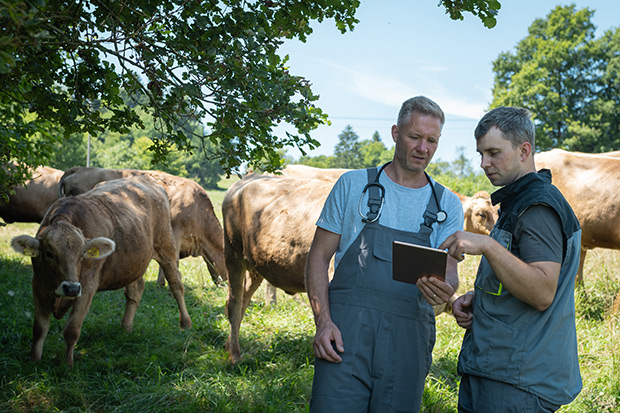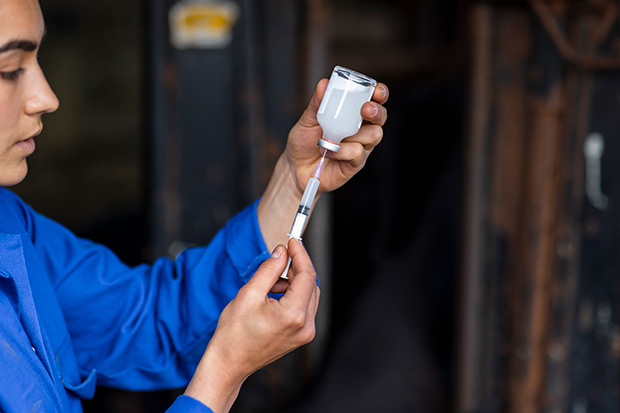AVMA Advocacy Evident in Recently Introduced Legislation

AVMA Advocacy Evident in Recently Introduced Legislation

AVMA advocacy evident in recently introduced legislation
Since the 119th Congress began in January, the AVMA has been working with legislators and their staffs to advance the profession’s interests and top legislative initiatives.
These issues range from retaining veterinarians in rural and underserved to keeping important veterinary drugs available for use by practitioners to helping pet owners manage the costs of veterinary care and pet insurance.
Rural Veterinary Workforce Act
AVMA advocacy work led to the reintroduction of the Rural Veterinary Workforce Act (HR 2398/S 1163) in the House and Senate on March 27. Republican Sen. Mike Crapo of Idaho and Democratic Sen. Tina Smith of Minnesota and Republican Rep. Adrian Smith of Nebraska and Democratic Rep. John Larson of Connecticut reintroduced the legislation, which is aimed at helping recruit and retain veterinarians in underserved and rural areas.
Specifically, this bipartisan bill would:
- Expand the reach and maximize the funding of the Veterinary Medicine Loan Repayment Program (VMLRP). The grant program from the U.S. Department of Agriculture’s (USDA) National Institute of Food and Agriculture (NIFA) offers veterinarians up to $120,000 in educational loan repayment in exchange for working in one of these USDA-designated shortage areas for at least three years.
- End the federal taxation on VMLRP awards. Currently, the awards are included in the recipient’s adjusted gross income, and the USDA is required by statute to pay the tax on the award on behalf of the recipient out of congressionally appropriated funds for the program. Eliminating the tax would allow the appropriated funds to go further and enable more veterinarians to participate in the program. This would also align the tax code with human and other health care professional awards.
“Livestock and public health veterinarians are essential to strengthening the nation’s animal health infrastructure and agricultural economy,” said Dr. Sandra Faeh, AVMA president, in a press release. “We urge Congress to address this increasingly important issue by passing the Rural Veterinary Workforce Act.”

In 2025, the USDA declared 243 rural veterinary shortage areas in 46 states. Since its inception, the program has received over 2,100 applications, and the USDA has awarded a total of 883 VMLRP grants to veterinarians.
Typically, applications for the VMRLP and the Veterinary Services Grant Program (VSGP) open in early March, but a banner on the website, last updated March 17, says, “All NIFA Requests for Applications are currently under review.” Previously scheduled informational webinars are now also listed as “TBD.”
The White House announced in February a plan to temporarily freeze federal grants pending their review, which is ongoing.
Dr. Faeh said in a special edition of the AVMA President’s Column published March 3, “We have contacted the Administration to communicate the importance of these programs for rural communities and to encourage the hold to be lifted for both programs. Your AVMA is working, as part of an effort that includes other health professions, on the programs noted above and also, importantly, student loan programs as a whole to share concerns and seek solutions.”
Combating Illicit Xylazine Act
Another piece of legislation, the Combating Illicit Xylazine Act (HR 1266/S 545), has been reintroduced in the House of Representatives by Democratic Rep. Jimmy Panetta of California and Republican Rep. August Fluger of Texas and in the Senate by Democratic Sen. Catherine Cortez Masto of Nevada and Republican Sen. Chuck Grassley of Iowa. The bill would list xylazine as a Schedule III controlled substance while protecting common uses and access to the drug by veterinarians and their clients.
The bill has bipartisan support in both the Senate and the House of Representatives.

Xylazine is a safe and effective prescription sedative used in dogs, cats, cattle, and horses, as well as elk, deer, and many other species to calm them, to facilitate safe handling, and to perform diagnostic and surgical procedures. In cattle, there is no practical alternative for sedation.
Frequently used in combination with other street drugs, illicit xylazine is known to lengthen the effects of fentanyl, which now comprises much of the illicit opioid supply. The White House, federal agencies, and state law enforcement officials center on illicit manufacturing and importation of xylazine from overseas as the predominant sources for what is being found in the street drug supply. Evidence is lacking that significant diversion is occurring from U.S. veterinary supply channels.
The Food and Drug Administration has not approved xylazine for human use and it is currently not a controlled substance. However, illicit xylazine’s growing presence in the U.S. drug supply and devastating human health and safety impact nationwide has prompted the federal government to pursue policy solutions.
The Drug Enforcement Administration has already started the administrative process for controlling xylazine as a scheduled drug. Passage of the Combating Illicit Xylazine Act would head off potential unintended consequences by preserving the availability of this prescription animal drug for use in veterinary medicine.
Meanwhile, multiple states have introduced or already enacted bills addressing xylazine. To date, 27 states have considered the status of xylazine and, of those, 15 have enacted xylazine restrictions.
The enactment of state-by-state restrictions has created a patchwork of differing rules for manufacturers, distributors, and veterinarians to navigate, as well as increases the likelihood of supply disruption.
Additional legislation
On February 27, the AVMA-endorsed Prevent All Soring Tactics (PAST) Act (HR 1684) was reintroduced in the House by Republican Rep. Fitzpatrick of Pennsylvania, alongside Democratic Rep. Steve Cohen of Tennessee, Republican Rep. Vern Buchanan of Florida, and Democratic Rep. Jan Schakowsky of Illinois. The legislation would crack down on the practice of horse soring by providing the enforcement necessary to catch those individuals soring horses and preserve horse welfare. The AVMA expects the Senate to follow with their companion bill later this Congress.
In addition, the People and Animals Well-being (PAW) Act (HR 1842) was reintroduced March 4 by Democratic Rep. Claudia Tenney of New York. The bill would amend Internal Revenue Service regulations to allow pet owners to use their HSA or FSA accounts to cover up to $1,000 for veterinary care or a pet health insurance plan. These funds would be available for those with service animals as well within current HSA and FSA contribution limits.
“The AVMA-endorsed People and Animals Well-being (PAW) Act helps maintain animal and human health, promotes and emphasizes the health benefits of pet ownership, and allows more people to become pet owners,” said Dr. Faeh in a statement.
